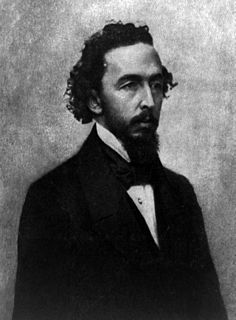A Quote by Bayard Taylor
It is an agreeable and yet a painful sense of novelty to stand for the first time in the midst of a people whose language and manners are different from one's own.
Related Quotes
Anybody who's a mythology ... there's always a fear. That's why we don't like people whose skin color is different, whose eye slant is different, or whose worship is different. It makes them feel insecure. So we strike out. The thing that bothers me most about the Christian church today is that we spend our time confirming people in their own sense of wretchedness.
Although there are those who wish to ban my books because I have used language that is painful, I have chosen to use the language that was spoken during the period, for I refuse to whitewash history. The language was painful and life was painful for many African Americans, including my family. I remember the pain.
I am as fond of colorful language as anyone, but I try not to inflict it upon strangers. I suspect many people sense they should have better manners, and need only a nudge. In high school, I was addressed for the first time in my life as "Mister Ebert" by Stanley Hynes, an English teacher, and his formality transformed his classroom into a place where a certain courtliness prevailed.
Lying is the misuse of language. We know that. We need to remember that it works the other way round too. Even with the best intentions, language misused, language used stupidly, carelessly, brutally, language used wrongly, breeds lies, half-truths, confusion. In that sense you can say that grammar is morality. And it is in that sense that I say a writer's first duty is to use language well.
Jesus is apt to come, into the very midst of life at its most real and inescapable moments. Not in a blaze of unearthly light, not in the midst of a sermon, not in the throes of some kind of religious daydream, but...at supper time, or walking along a road...He never approached from on high, but always in the midst, in the midst of people, in the midst of real life and the questions that real life asks.
There are two qualities that make fiction. One is the sense of mystery and the other is the sense of manners. You get the manners from the texture of existence that surrounds you. The great advantage of being a Southern writer is that we don't have to go anywhere to look for manners; bad or good, we've got them in abundance. We in the South live in a society that is rich in contradiction, rich in irony, rich in contrast, and particularly rich in its speech































